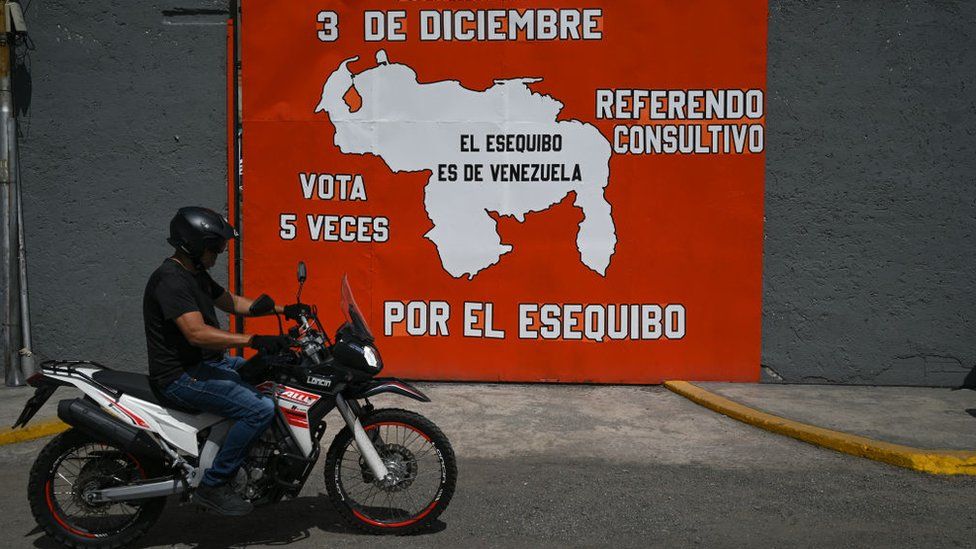-

-
-
Loading

Loading

Venezuelans are currently participating in a referendum that has intensified tensions between Venezuela and its neighbor, Guyana. The purpose of the referendum is to gauge popular support for Venezuela's historical claim to a disputed oil-rich area of jungle that is currently under the administration of Guyana. This region, known as Essequibo, makes up two-thirds of the land controlled by Guyana and is home to a significant portion of its population. The dispute over this area has been ongoing for over a century. In 1899, an international tribunal awarded the area to Britain, which ruled over Guyana at the time. However, Venezuelan governments have consistently rejected this ruling as unfair. In 1966, an agreement known as the Geneva Agreement was made between Britain and Venezuela to establish a commission to address the territorial dispute. Despite nearly six decades passing since the agreement was reached, no resolution has been reached. The dispute escalated in 2015 when ExxonMobil discovered oil in the offshore waters of Essequibo. In 2018, Guyana brought the case to the International Court of Justice (ICJ) with the approval of the United Nations Secretary-General. While the ICJ has jurisdiction over the case, a ruling on the merits of the dispute, particularly the validity of the 1899 award, has yet to be issued. The tension between the two countries increased further when Guyana held an auction for oil exploration licenses in Essequibo waters and made a significant new oil discovery in the area. Venezuela, which has the largest proven oil reserves in the world, is under US sanctions on its oil sector. Additionally, President Nicolás Maduro's government is facing pressure to allow free and fair elections in 2024. Many see the Essequibo referendum as a tactic by President Maduro to divert attention from calls for fair elections. The referendum, although non-binding internationally, has been condemned by Guyana as an aggressive attempt to annex territory. Venezuelan voters are being asked five questions related to their support for Venezuela's claim over the Essequibo region, their rejection of the ICJ's jurisdiction, opposition to Guyana's use of the sea waters off Essequibo, approval of the creation of the Guayana Esequiba state, and its incorporation into Venezuelan territory. There are concerns about what the Maduro government plans to do if the referendum shows significant support for these questions. The construction of an airstrip near the demarcation boundary and the potential for armed conflict have been raised as potential risks. Guyana's Vice-President has warned Venezuela against aggressive acts and stated that his government has received international support. However, Guyana remains committed to resolving the border dispute peacefully, as expressed by their President's visit to Essequibo. Finally, the ICJ has ordered Venezuela to avoid any actions that may alter the current status quo in Essequibo.